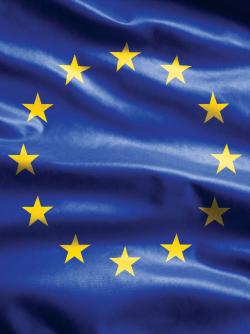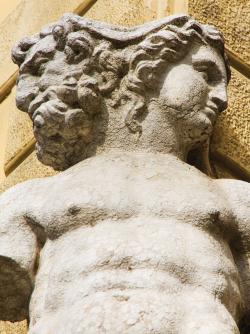The Queen: A Royal Vocation
In a world beset with constant strife, what is the value of one venerable monarch’s tireless example?
Across the English-speaking world, there is perhaps only one person today known simply as “the Queen.” She is Queen Elizabeth II of the United Kingdom. Whatever one’s view of monarchy and British politics, one cannot fail to admire her lifetime of devotion to her duty as monarch, well past the age at which most people retire. Her personal qualities of courtesy, warmth, and good humour garner respect and love wherever she goes.
Now aged 95, and despite recent health challenges, this indefatigable monarch still possesses remarkable drive and determination to fulfil what she herself sees as her vocation. Thanks to her humility, enduring strength, and selfless commitment to her role, popular respect for Queen Elizabeth II remains high.
Seventy Years as Queen
February 6, 2022, will represent a truly extraordinary milestone in the Queen’s illustrious reign. No previous British monarch has reigned for 70 years—indeed, Elizabeth six years ago surpassed the 64-year reign of Queen Victoria (1837–1901), and a quarter-century ago surpassed that of her namesake, Elizabeth I, who reigned for 45 years (1558–1603). Only two European monarchs have reigned longer—Louis XIV of France for 72 years (1643–1715), and Johann II of Liechtenstein for 70 years and three months (1858–1929).
Having enjoyed robust good health all her life, her declining energy levels now demand that she take things easier and delegate ever more responsibility to younger members of her family. Yet she continues to do her duty—to pursue what she sees as her vocation as Queen.
So, how does Elizabeth define her vocation—and how did it come about? More importantly, what lessons can we draw from a remarkable life’s story to ponder and apply in our own lives? You may be amazed to learn about the spiritual parallels to Queen Elizabeth’s life that can be applied to everyone reading this today.
A Surprise Accession
According to historic rules of accession, it was unlikely that Elizabeth would ever inherit the throne, or at least not for a long time. Her father, Albert (Bertie) George, was not first in line to be king after King George V. He was not groomed for that role, nor was his daughter. But when Elizabeth’s uncle, Edward VIII, abdicated after just eleven months to marry the American divorcee Wallis Simpson, her father came to the throne as King George VI.
This put the eleven-year-old Elizabeth next in line for the throne and set her on the pathway to a dramatically different future. The shy and stammering King George VI metamorphosed into Britain’s respected wartime monarch, revealing his unshakeable sense of duty. He also set about the mammoth task of preparing Elizabeth for the demanding role she would one day inherit—a role impressing on her the importance of public service and traditional Christian values.
An ordinary girl was about to be transformed into something quite extraordinary. Little did anyone know that the King would die young, only 56 years old, on February 6, 1952, thrusting Elizabeth so soon into global prominence as Queen. Happily, with time, it would become clear to all that Elizabeth’s qualities equipped her to serve as an outstanding monarch.
A Solemn Act of Dedication
When she was 21 years old, Elizabeth made what she called “a solemn act of dedication” that would frame her entire life. It reveals much about her character and values. In a radio message to the Commonwealth whilst on a tour of South Africa, with the world as her witness, she explained:
If we all go forward together with an unwavering faith, a high courage, and a quiet heart, we shall be able to make of this ancient commonwealth… a more powerful influence for good in the world…. To accomplish this we must give nothing less than the whole of ourselves. There is a motto that has been borne by many of my ancestors—a noble motto, ‘I serve’…. I declare before you that my whole life, whether it be long or short, shall be devoted to your service and the service of our great Imperial Commonwealth to which we all belong (Joanna Lumley, A Queen for All Seasons, 2021, p. 12).
Christianity, such as she understands it, is a bulwark of her life and her work. In 1952, as the Archbishop of Canterbury, Geoffrey Fisher, helped the Queen prepare for her role, he told her that she was “‘God-called’ to exert a spiritual power and lead her subjects by her personal example” (Andrew Marr, The Real Elizabeth, 2012, p. 131). The English word vocation brings from its Latin roots the sense of a “calling.” The Queen believes that her role as monarch flows from God’s calling her to that role. Her ideal of service to others is generated by her commitment to serve God and to lead by following what she sees as His example.
During her coronation service on June 2, 1953, she vowed upon the Bible to uphold all her promises—to judge with law, justice, and mercy; to maintain the laws of God; and to preserve the Church of England. Over the years, the Queen has indeed dedicated herself to the fulfilment of this purpose. She clearly perceives her calling as both a physical vocation and a spiritual one.
The Queen is faithful in maintaining what she understands as her relationship with God. She prays daily. She attends church services every week. She reads her Bible. She so often seems peaceful, serene, and happy, because she strives to rely on God for the faith and strength to cope with each day’s challenges. We can expect her to pursue her vocation until she can do so no more!
God’s Spiritual Calling
As rulers bear a responsibility before God to lead lives of service and self-sacrifice, God also equips for works of service those He is actively calling into His true Church today (1 Corinthians 1:26; 2 Timothy 1:9; Hebrews 3:1). Every true Christian has a royal vocation to serve as a monarch under the King of kings, Jesus Christ, when He returns to establish the Kingdom of God on planet Earth (Revelation 1:6; 5:10; 20:4–6).
God’s calling is often unexpected when we receive it—and it brings a radical new direction to our lives (Hebrews 10:19–23). It transforms our character to be more and more like God’s holy and righteous character, and we bear more and more of that good fruit as we live by His laws (Romans 12:1–2). We rise to the challenge of living God’s way, relying on Him in faith to direct our lives (2 Thessalonians 1:11). We build new lives on the rock-solid foundation of Christ’s teachings and actions (Matthew 7:24–27). This is what the Queen set out to accomplish—and, with God’s help, it is what each of you who are reading this may do.
Queen Elizabeth II has been widely praised throughout her reign for the example she has set and the good she has done. This is no accident. It is a result of her dedication to what she sees as her Christian vocation, with daily reliance on God for strength.
Is God calling you to His true vocation? Those who respond to God’s call must be willing to dedicate their lives to Him in service to His Church and coming Kingdom (John 4:23–24). If you would like to learn more of what that might entail, request a free copy of Restoring Original Christianity or read it online at TomorrowsWorld.org.
[Editor’s Note: As originally published, this article misstated the Queen’s Accession Day as February 8. This has been corrected in the version above.]






